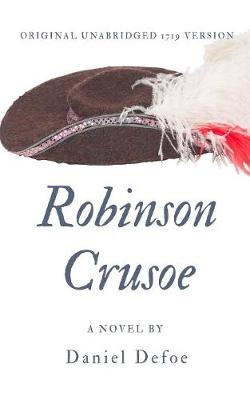Reviewed by Michael @ Knowledge Lost on
Some may disagree but I found that Defoe set out to shatter the misconceptions that Europeans had towards colonialism. When Robinson Crusoe lands on the island he adopts colonialism, as it is familiar to him and the political nature he recognises. You see the progression of this social structure from when Crusoe first found himself on the island. He built his shelter, farmed the lands and hunted. Then when other people were introduced, the social order fell into place, putting himself as lord and master. Others like Friday and his father were slaves, but the Spaniard and the Englishmen were treated completely differently.
Another theme I noticed while reading Robinson Crusoe was the idea of isolation; this was portrayed in a literal sense. Stuck on the island, Crusoe had so much time on his hand he spends it contemplating society, religion, politics and the world. What was interesting to note is the fact that there was no real mention of women in the book; there were some but none played a significant role. This detail is something I spent a lot of time contemplating, it felt like with all his reflections, women never were an important part of the world. I’m not sure what Defoe meant by this but I’m sure it is something worth investigating.
I found Robinson Crusoe fascinating; I was studying it for university so I had to look at what Daniel Defoe was trying to say about colonialism. However there is something that really annoyed me about the book and that is the way the writing style kept changing. It felt like Defoe wasn’t sure how he was writing the novel, switching between diary entries and first person narrative. It didn’t feel intentional just changing whenever it suited him and that, in turn, just felt sloppy.
Robinson Crusoe isn’t a great book; I’m glad I read it but it just isn’t something I can praise. It wasn’t a problem with the themes or the style; it just focused too much on survival and missed opportunities to explore other topics. Sure, this is a classic and you have to give a book credit for staying around so long, but Robinson Crusoe just wasn’t for me.
This review originally appeared on my blog; http://literary-exploration.com/2014/02/10/robinson-crusoe-by-daniel-defoe/
Reading updates
- Started reading
- 19 January, 2014: Finished reading
- 19 January, 2014: Reviewed
